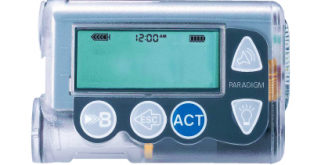Diabetes is a complex disease. You may have heard conflicting theories on what causes it, how it is diagnosed, and how it is managed. If you are affected by diabetes, you will want the truth about the disease and also the medications. Here are some common myths that you may have heard about diabetes medication especially insulins :
Myth 1 : Can Metformin cause kidney failure?
Fact 1 : No. Metformin itself is unlikely to cause kidney failure but it is known to be excreted by the kidney.
People with kidney disease may have problems eliminating metformin from their bodies. So, Metformin should not be used in people with kidney disease because of risk of metformin accumulation and lactic asidosis.
Myth 2 : Is insulin derived from porcine source?
Fact 2 : No. All insulin is now manufactured based on human insulin.
Human insulin does not come from human beings-rather, it is ‘synthetic insulin’. Synthetic insulin was first produce in 1980’s and has completely replaced the old source, animal insulin (usually from the pancreases of cows and pigs). This synthetic insulin was manufactured from DNA source, in a laboratory.
Synthetic insulin is almost identical to the hormone produce by the human pancreas.
It’s also as superior to beef or pork insulin, as it is absorbed more rapidly. This synthetic insulin also causes fewer allergic or autoimmune than insulin hormone extracted from the pancreas of animals.
So, for Muslim concern on Halal issue, you do not have to worry anymore.
Myth 3 : My sugar level is under controlled, can I stop my diabetes medication?
Fact 3 : No. You should not stop taking your diabetes medication without consulting your doctor.
People with type 1 diabetes aren’t able to make their own insulin, so they will always have to take insulin shots everyday, life long.
For people with type 2 diabetes, it changes over time. This means that even if you were able to stop taking medicine for a while, you might need to start taking it again.
You may be able to stop your medication if you lose weight or increase your physical activity. Your doctor will need to follow you closely to see when it may be safe to stop your medication and see how you do without it.
Myth 4 : Can I share my diabetes medication with someone else?
Fact 4 : No. Not all diabetes patients will be prescribing with the same medication.
Each patient will be treated individually depending on their blood sugar level and lifestyle.
It is very dangerous if you just share your medication with others without medical consultation. Also, never share an injection pen or cartridge with another person. Sharing injection pens or cartridges can allow disease such as hepatitis or HIV to pass from one person to another.
Myth 5 : All people with diabetes need to take insulin.
Fact 5 : All people with type 1 diabetes have to take insulin injections as their pancreases don’t produce insulin.
Some, but not all, people with type 2 diabetes have to take insulin with or without pills to manage their blood sugar levels as advised by their physician.
Myth 6 : Insulin cures diabetes.
Fact 6 : Diabetes is a metabolic disorder and diabetes is not a curable disease. Once you have diabetes you have it forever.
Insulin is a medicine that helps to keep the levels of blood glucose in the near-normal range. Insulin itself does not cure the diabetes.
Taking insulin just helps in managing diabetes. Insulin helps in utilizing the glucose in the body to be used for producing energy. This helps in keeping the blood sugar levels under control, but taking insulin still doesn’t correct the underlying cause.
Myth 7 : Having to take insulin means diabetes is at the end stage.
Fact 7 : Type 2 diabetes is a progressive disease.
When first diagnosed, many people with type 2 diabetes can keep their blood glucose at a healthy level with oral medications.
But over time, the body gradually produces less and less of its own insulin and eventually oral medications may not be enough to keep blood glucose levels normal. Using insulin to get blood glucose levels to a healthy level is a good thing, not a bad one. Insulin usage is beneficial at every stage of diabetes either early or late.
Myth 8 : Having to take insulin means diabetes is getting worse.
Fact 8 : False. Insulin may be used at any time to help control diabetes.
If your doctor tells you that you need insulin therapy, it does not mean you have failed to do the best to manage your diabetes or your condition is getting worse.
Eventually, your pancreas may not be able to cope with the amount of insulin that your body needs.
Diabetes is an insulin problem, not a glucose problem. Proper insulin intake is the best way to lower blood glucose level.
Myth 9 : Injecting insulin is painful.
Fact 9 : Fear of needles is a common complaint for many people taking injections.
However, today’s insulin syringes and pens are virtually painless. Due to medical technology, insulin needles are much smaller and thinner than ever. Most new insulin users are pleasantly surprised when their first shot ends up hurting much less than they expected.
The best way to overcome this fear is to try insulin injections yourself. Your primary care physician can show you how to administer the injection. If you try it yourself and still feel pain, discuss this with your doctor. Your injection method and even the temperature of the insulin could be a factor.
Myth 10 : Taking insulin will make my life more complicated.
Fact 10 : If your doctor prescribes insulin, don’t panic.
You will not be confined to home, destined to never travel again. Instead you will find with time that insulin injections will simply become a part of your daily routine.
Your doctor can design a dosing schedule that will fit your lifestyle and various types of insulin are available for different needs. Convenience devices like insulin pens and pumps may provide even more flexibility in your daily life.
Myth 11 : Insulin will increase my weight.
Fact 11 : It is TRUE that many patients whom on insulin injections gain weight.
Weight gain is a common side effect for people who take insulin. Insulin is needed to regulate the absorption of sugar (glucose) into the cells. Weight gain may be related insulin.
In fact, it is excessive eating that causes weight gain. A healthy diet that includes portion control, fruits and vegetables, as well as regular exercise remains the most effective way to control weight gain.
By combining these steps with your insulin therapy, you should begin to lose any weight that you gained.
Myth 12 : Take more insulin when you eat more.
Fact 12 : Don’t you ever adjust your insulin doses without any information on how to do it.
You have to learn how to adjust the amount and type of insulin to match the amount of food you eat. You should also be more active in self blood glucose monitoring and know exactly about insulin type that you are on.
But this doesn’t mean you can eat as much as you want, then just use more insulin to stabilize your blood sugar level. Increasing insulin dose without monitoring blood glucose will put you at risk of hypoglycaemia. Follow your regular diet as planned by your dietitian for optimum result.
Myth 13 : People will think I’m a drug addict if I carry syringes.
Fact 13 : Tell your friends, family and co-worker about your diabetes, so that they know you are injecting insulin and are not a drug addict.
However, some uninformed people usually jump to the wrong conclusion when they see a person with diabetes injecting insulin.
But fortunately, most people are aware of what insulin injection is, so you should not run into this problem, and if you would rather not to tell anyone about your condition, try carrying your supplies in a zippered case and injecting insulin privately.
Also, with today new technologies, ask your doctor to change to the new insulin pen which is more convenience to use.
References
- 10 diabetes Diet Myth,WebMD; webmd.com/10-diet-myths
- An overview of the various types of insulin used in, DiabetesInfo; diabetes-info.co.uk/treating-diabetes/insulin-overview.html
- Animal & Synthetic Insulin Drug Medications; carbs-information.com/insulin-synthetic.htm
- Common questions about Diabetes Medication, GroupHealth; ghc.org/healthAndWellness/
- Diabetes and Sport: diabetes.co.uk/diabetes-and-sport.html
- Diabetes Myths, American Diabetes Association;diabetes.org/diabetes-basics/diabetes-myths/
- Managing Your Diabetes Care; http://diabetes.webmd.com/h2t-managing-diabetes-11 .
 PENDIDIKAN PESAKIT Kementerian Kesihatan Malaysia
PENDIDIKAN PESAKIT Kementerian Kesihatan Malaysia



